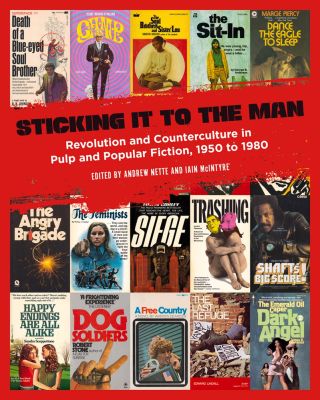From civil rights and Black Power to the New Left and gay liberation, the 1960s and 70s saw a host of movements shake the status quo. The impact of feminism, anticolonial struggles, wildcat industrial strikes, and antiwar agitation were all felt globally. With social strictures and political structures challenged at every level, pulp and popular fiction could hardly remain unaffected. Feminist, gay, lesbian, black, and other previously marginalized authors broke into crime, thrillers, erotica, and other paperback genres previously dominated by conservative, straight, white males. For their part, pulp hacks struck back with bizarre takes on the revolutionary times, creating fiction that echoed the Nixonian backlash and the coming conservatism of Thatcherism and Reaganism. Sticking It to the Man tracks the ways in which the changing politics and culture of the 1950s, 60s, and 70s were reflected in pulp and popular fiction in the United States, the UK, and Australia. Featuring more than three hundred full-color covers, the book includes in-depth author interviews, illustrated biographies, articles, and reviews from more than two dozen popular culture critics and scholars. Among the works explored, celebrated, and analyzed are books by street-level hustlers turned best-selling black writers Iceberg Slim, Nathan Heard, and Donald Goines; crime heavyweights Chester Himes, Ernest Tidyman, and Brian Garfield; Yippies Anita Hoffman and Ed Sanders; best-selling authors such as Alice Walker, Patricia Nell Warren, and Rita Mae Brown; and a myriad of lesser-known novelists ripe for rediscovery. Contributors include: Gary Phillips, Woody Haut, Emory Holmes II, Michael Bronski, David Whish-Wilson, Susie Thomas, Bill Osgerby, Kinohi Nishikawa, Jenny Pausacker, Linda S. Watts, Scott Adlerberg, Maitland McDonagh, Andrew Nette, Danae Bosler, Michael A. Gonzales, Iain McIntyre, Nicolas Tredell, Brian Coffey, Molly Grattan, Brian Greene, Eric Beaumont, Bill Mohr, J. Kingston Pierce, Steve Aldous, David James Foster, and Alley Hector.

